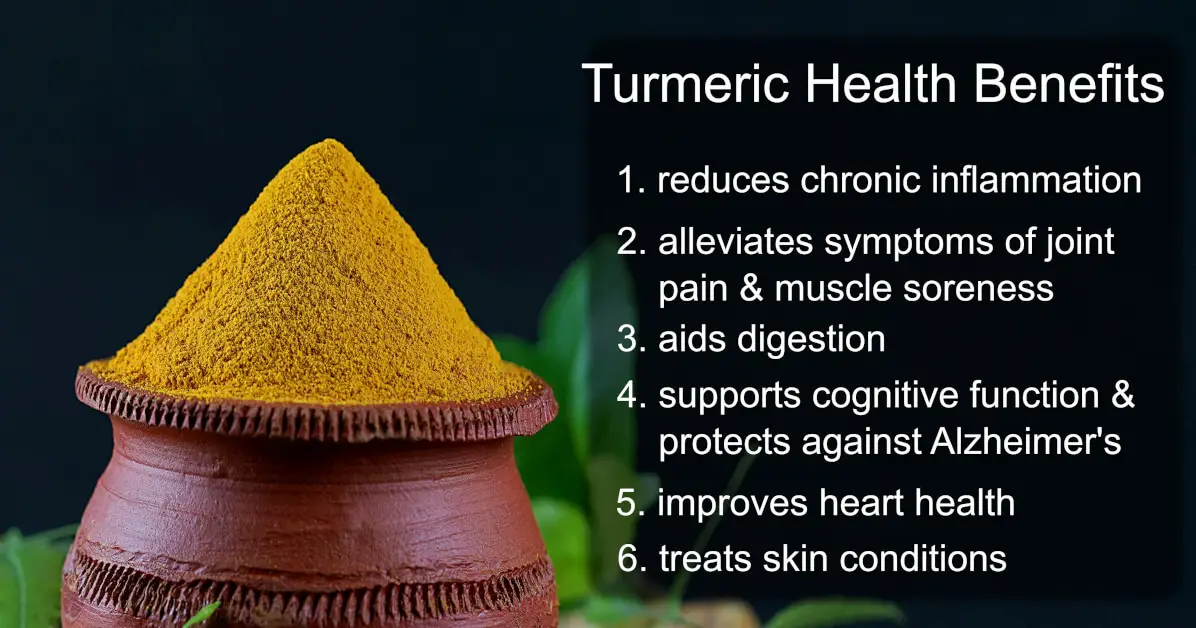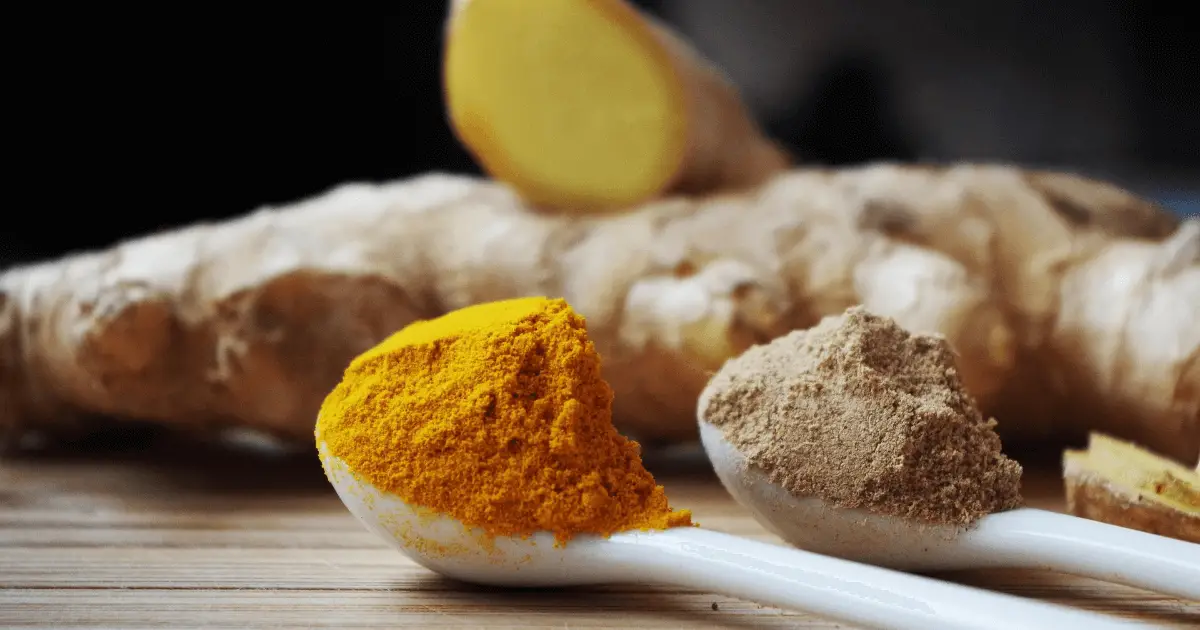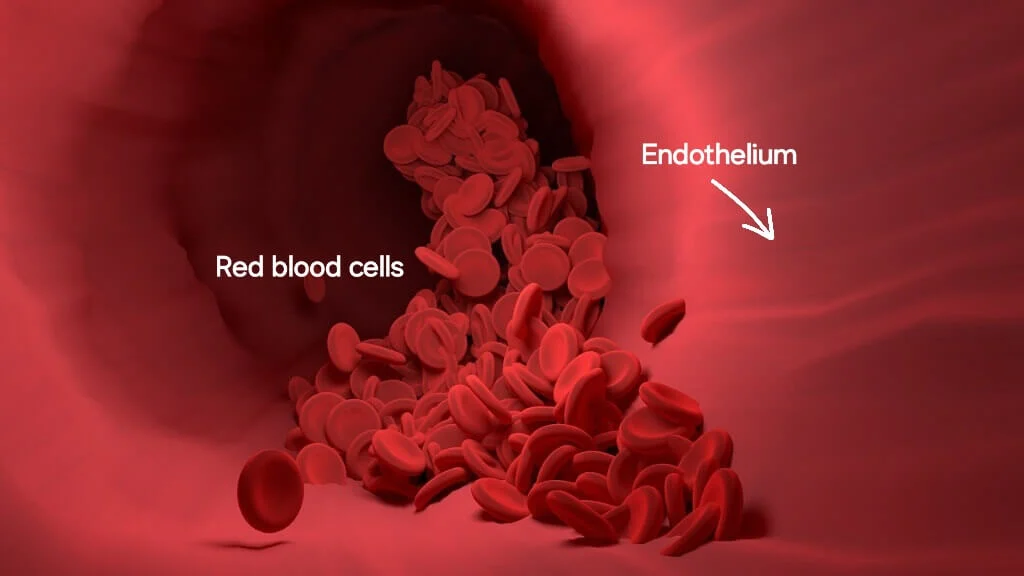Reviewed and edited by: P. A. Regoniel

Have you ever tried turmeric in your drink or diet? If you did, you’re on the right path. Turmeric benefits are many. I will discuss them in this article as part of my research on alternative medicine specifically those derived from nature. References are provided in this article if you want to read more about the scientiic findings specifically on the health benefits of turmeric or its active ingredient curcumin.
Table of Contents
The Power of Turmeric
Turmeric (Curcuma longa) is a vibrant yellow-orange spice derived from the root of a plant in the ginger family. With a rich history spanning thousands of years, turmeric has been a staple in traditional medicine systems such as Ayurveda and Traditional Chinese Medicine, as well as a culinary spice.

The primary active compound in turmeric is curcumin, responsible for most of its health benefits. Curcumin benefits are huge as it helps ease inflammation, alleviates joint and muscle pain symptoms, aids digestion, protect against Alzheimer’s disease, lowers cholesterol, and treats skin conditions.
The various turmeric health benefits are discussed in more detail in the next section.
5 Main Turmeric Benefits for Better Health (Backed by Science)
1. Alleviates symptoms of arthritis, joint pain, and muscle soreness
Turmeric is widely used to alleviate symptoms of arthritis (Zeng, et al., 2022), joint pain, and muscle soreness. Studies show it may help reduce pain and improve mobility in osteoarthritis and rheumatoid arthritis.
A meta-analysis of meta-analyses strongly support curcuminoid supplementation in relieving pain, improving joint mobility and stiffness, and shortening medication usage of osteoarthritis patients (Bideshki, et al., 2024). Specifically for knee osteoarthritis, all turmeric preparations appear to be effective when used as a treatment approach that utilizes a single medication compared to placebo (Wai et al., 2025).
2. Improves digestive health
Turmeric can aid digestion by stimulating bile production, reducing bloating, and soothing the digestive tract. It is sometimes used to manage indigestion and irritable bowel syndrome (IBS). A meta-analysis revealed that curcumin has anti-oxidant and anti-inflammatory activities and ability to modulate gut microbiota, thereby addressing IBS (Ng et al., 2018; Jafarzadeh et al., 2022).
Shahinfar et al. (2021) studied the effects of curcumin on patients with Inflammatory Bowel Disease (IBD). (IBD is different from IBS although they share similar symptoms. IBD includes conditions like Crohn’s disease and ulcerative colitis.) Their results show that curcumin supplementation reduced symptoms, made life easier to patients, and had fewer flare-ups. Overall, they have better quality of life.
3. Supports brain function
Curcumin may support cognitive function and protect against neurodegenerative diseases like Alzheimer’s by reducing inflammation and oxidative stress in the brain. Oxidative stress refers to an imbalance between the production of free radicals and reactive oxygen species (ROS), and the ability of the body’s antioxidant defenses to counteract or detoxify their harmful effects.
That may be difficult to understand. What do we mean my oxidative stress here? Let me explain using a simple analogy.
Imagine your body is like a garden, and the free radicals and reactive oxygen species (ROS) are like weeds in that garden.
In a healthy garden, there are some weeds, but they are kept in check by the gardener (your body’s antioxidant defenses). The gardener pulls out the weeds when they start to get out of control, maintaining a nice balance.
But sometimes, the garden gets overrun with too many weeds (free radicals/ROS). Maybe there’s a lot of pollution or the gardener isn’t able to keep up. This is like oxidative stress – there are too many weeds (free radicals) and not enough gardeners (antioxidants) to remove them.
When there’s too much oxidative stress, it starts to damage the plants in the garden (your cells and tissues). The flowers wilt, the vegetables get diseased, and the whole garden starts to deteriorate.
Similarly, in the human body, excessive oxidative stress can damage cells, proteins, and DNA, leading to inflammation and contributing to conditions like Alzheimer’s disease and cognitive decline.
Just like adding more gardeners (antioxidants) can help restore balance to an overgrown garden, substances like curcumin that have strong antioxidant properties are being studied to see if they can help counter the oxidative stress in the “garden” of the human body.
Wang et al. (2025) in their systematic review and meta-analysis found that supplementation of curcumin can effectively improve the overall ability to process information, learn, and adapt to new situations. The beneficial effect of curcumin along this area is more potent in older and Asian participants than younger and Western ones.
Also, it should be noted in this meta-analysis that the optimal dose of curcumin is 0.8 g/day. This means that a positive effect on cognitive function was observed at this dosage. This finding suggests that there is a certain level of positive effect at the correct dose. If it is either more or less than the optimal dose, then less benefit will be gained and may be potentially harmful if done in excess (although the researchers noted that the negative effect is not significant).
4. Improves heart health
Turmeric may improve heart health by lowering cholesterol, reducing blood pressure, and preventing blood clots.
Hadi et al. (2019) and Wen Tan et al. (2024) in their systematic review and meta-analysis on the effect of curcumin or turmeric, suggests that curcumin may help improve blood vessel function by reducing inflammation and improving the health of the endothelium, which is the inner lining of blood vessels. When the endothelium is healthy, it helps to relax and dilate blood vessels, allowing for better blood flow and lower blood pressure.

One specific way that curcumin may achieve this is by inhibiting the activation of certain proteins, which are involved in inflammation and blood vessel constriction. By reducing the activity of these proteins, curcumin may help to:
- Reduce vascular stiffness and improve blood vessel elasticity
- Increase nitric oxide production, which helps to relax and dilate blood vessels
- Reduce the formation of blood clots and improve blood flow
This, in turn, can help to lower blood pressure, reduce the risk of heart disease and stroke, and improve overall cardiovascular health. Curcumin expands the circulatory system highway.
5. Treats skin problems
Turmeric is used for its antibacterial and anti-inflammatory properties to treat acne, eczema, and other skin conditions. Patel et al. (2023) in their systematic review revealed that curcumin has an excellent safety profile. The review suggests that curcumin may be considered as an adjunctive treatment for psoriasis, caesarean section scar, and pruritus (itching), with moderate-quality evidence supporting its use.
However, further research is needed to determine the efficacy and safety of curcumin for other dermatological diseases, including radiation dermatitis, oral lichen planus, vitiligo, and facial redness, for which the evidence is low-quality.
Forms of Turmeric Used Today
Turmeric is available in various forms, including:
- Raw Turmeric: Fresh or dried turmeric root
- Turmeric Powder: Dried and ground turmeric root
- Curcumin Supplements: Standardized extracts of curcumin
- Turmeric Tea: Infused turmeric root in hot water
- Turmeric Capsules: Encapsulated turmeric powder or curcumin extract
Turmeric Health Benefits in Emergency and Non-Emergency Situations
Turmeric can be used in both emergency and non-emergency situations. Some examples include:
1. Emergency
When it comes to treating acute inflammation, such as sprains or strains, turmeric can be used in various forms to reduce pain and inflammation. Here’s a more detailed explanation:
Treating Acute Inflammation with Turmeric
Acute inflammation is a short-term inflammatory response to injury or trauma, which can cause pain, swelling, and limited mobility. Turmeric’s anti-inflammatory and antioxidant properties make it an effective natural remedy for treating acute inflammation.
Form of Turmeric to Use
When treating acute inflammation, it’s best to use Turmeric Powder or Curcumin Supplements. These forms of turmeric are more bioavailable, meaning a substance that can be easily absorbed by the body, providing faster relief from pain and inflammation.
Dosage and Administration
For acute inflammation, the recommended dosage of turmeric powder or curcumin supplements is as follows:
- Turmeric Powder: 1-2 teaspoons (5-10 grams) of turmeric powder mixed with water or a carrier oil (such as coconut or olive oil) and applied topically to the affected area. Alternatively, 1-2 capsules of turmeric powder (500-1000 mg) can be taken orally with water or a meal.
- Curcumin Supplements: 500-1000 mg of curcumin extract taken orally with water or a meal, 2-3 times a day.
Application Methods
To apply turmeric powder or curcumin supplements topically, you can use the following methods:
- Topical Paste: Mix 1 teaspoon of turmeric powder with 1 teaspoon of coconut oil or olive oil to create a paste. Apply the paste directly to the affected area and massage gently.
- Turmeric Oil: Mix 1 teaspoon of turmeric powder with 1 tablespoon of coconut oil or olive oil to create a turmeric oil. Apply the oil directly to the affected area and massage gently.
Duration of Treatment
The duration of treatment depends on the severity and location of the acute inflammation. Generally, treatment can last from a few days to a few weeks. It’s essential to monitor the condition and adjust the dosage or treatment method as needed.
Precautions
When using turmeric to treat acute inflammation, it’s essential to follow these precautions:
- Consult a Healthcare Professional: Before using turmeric to treat acute inflammation, consult with a healthcare professional to determine the best course of treatment and dosage.
- Monitor for Allergic Reactions: Monitor for any signs of allergic reactions, such as itching, redness, or swelling.
- Avoid Overuse: Avoid overusing turmeric, as excessive consumption can cause stomach upset or interact with other medications.
By following these guidelines and using the right form of turmeric, you can effectively treat acute inflammation and reduce pain and inflammation.
2. Non-Emergency
When it comes to preventing chronic diseases, such as heart disease or cancer, turmeric can be used in various forms to reduce inflammation and oxidative stress. Here’s a more detailed explanation:
Preventing Chronic Diseases with Turmeric
Chronic diseases, such as heart disease or cancer, are long-term conditions that can be caused by a combination of genetic, lifestyle, and environmental factors. Turmeric’s anti-inflammatory and antioxidant properties make it an effective natural remedy for preventing chronic diseases.
Form of Turmeric to Use
When preventing chronic diseases, it’s best to use Curcumin Supplements or Turmeric Extracts. These forms of turmeric are more bioavailable and can be easily absorbed by the body, providing long-term benefits.
Dosage and Administration
For preventing chronic diseases, the recommended dosage of curcumin supplements or turmeric extracts is as follows:
- Curcumin Supplements: 500-2000 mg of curcumin extract taken orally with water or a meal, 1-2 times a day.
- Turmeric Extracts: 1-2 teaspoons (5-10 grams) of turmeric extract taken orally with water or a meal, 1-2 times a day.
Method of Intake
To take curcumin supplements or turmeric extracts, you can use the following methods:
- Capsules or Tablets: Take curcumin supplements or turmeric extracts in capsule or tablet form, following the recommended dosage.
- Powder: Mix 1 teaspoon of curcumin powder or turmeric extract with water or a meal to create a solution.
Duration of Treatment
The duration of treatment depends on the individual’s health status and the severity of the chronic disease. Generally, treatment can last from several months to several years.
Precautions
When using turmeric to prevent chronic diseases, it’s essential to follow these precautions:
- Consult a Healthcare Professional: Before using turmeric to prevent chronic diseases, consult with a healthcare professional to determine the best course of treatment and dosage.
- Monitor for Allergic Reactions: Monitor for any signs of allergic reactions, such as itching, redness, or swelling.
- Avoid Overuse: Avoid overusing turmeric, as excessive consumption can cause stomach upset or interact with other medications.
Combination with Other Supplements
Turmeric can be combined with other supplements to enhance its benefits. Some examples include:
- Omega-3 Fatty Acids: Omega-3 fatty acids can help reduce inflammation and oxidative stress, making them a good combination with turmeric.
- Vitamin D: Vitamin D can help regulate inflammation and immune function, making it a good combination with turmeric.
- Probiotics: Probiotics can help regulate gut health and reduce inflammation, making them a good combination with turmeric.
Probiotics are commonly found in fermented foods and beverages. Examples include yogurt, kefir, sauerkraut and kimchi, fermented cabbage dishes, miso, and tempeh.
Best Form of Turmeric to Use
Based on scientific findings, the best form of turmeric to use is Curcumin Supplements. Curcumin is the primary active compound in turmeric, and it has been shown to have potent anti-inflammatory and antioxidant properties. Jäger et al. (2014) found that curcumin supplements with a special formulation that makes it more water-soluble and stable are more effective than regular, unformulated curcumin supplements.
Recommended Intake
While there is no official Recommended Dietary Allowance (RDA) for turmeric, general guidelines for curcumin intake have been established based on research:
- Turmeric Powder: Typically, 1 to 3 grams per day of turmeric powder is considered safe and effective for most adults.
- Curcumin Extract: Standardized curcumin supplements are often taken at doses of 500 to 2,000 mg per day, usually divided into two or three doses.
- Bioavailability: Curcumin has low natural bioavailability, so it is often taken with black pepper (which contains piperine) or fats to enhance absorption.
Note that according to Wang et al. (2025), the optimal dose and duration is 0.8 g of curcumin per day and greater or more than 24 weeks. A specialist of alternative medicine can help guide you along this respect as the dosage ultimately depends on other factors like weight, age, and tolerability of curcumin although this was considered generaly safe.
Potential Adverse Reactions
Turmeric is generally safe when consumed in culinary amounts, but higher doses or supplements may cause side effects in some individuals.
- Common Side Effects: Gastrointestinal issues, nausea, stomach upset, acid reflux, or diarrhea may occur, especially with high doses.
- Allergic Reaction: Some people may experience skin rashes or itching when using turmeric topically or orally.
- Serious Concerns: Bleeding, gallbladder problems, and iron absorption may be affected by high doses of turmeric.
Note: While turmeric has been shown to be effective in preventing chronic diseases, it is essential to consult with a healthcare professional before using it as a treatment.
Precautions
- Pregnancy and Breastfeeding: Turmeric is likely safe in food amounts, but high doses or supplements should be avoided during pregnancy and breastfeeding due to limited safety data.
- Drug Interactions: Turmeric may interact with blood thinners (e.g., warfarin), diabetes medications, and drugs that reduce stomach acid. Consult a healthcare provider if you’re on medication.
References
Bideshki, M. V., Jourabchi‐Ghadim, N., Radkhah, N., Behzadi, M., Asemani, S., Jamilian, P., & Zarezadeh, M. (2024). The efficacy of curcumin in relieving osteoarthritis: A meta‐analysis of meta‐analyses. Phytotherapy Research, 38(6), 2875-2891.
Hadi, A., Pourmasoumi, M., Ghaedi, E., & Sahebkar, A. (2019). The effect of Curcumin/Turmeric on blood pressure modulation: A systematic review and meta-analysis. Pharmacological research, 150, 104505.
Jafarzadeh, E., Shoeibi, S., Bahramvand, Y., Nasrollahi, E., Maghsoudi, A. S., Yazdi, F., … & Hassani, S. (2022). Turmeric for treatment of irritable bowel syndrome: a systematic review of population-based evidence. Iranian journal of public health, 51(6), 1223.
Jäger, R., Lowery, R. P., Calvanese, A. V., Joy, J. M., Purpura, M., & Wilson, J. M. (2014). Comparative absorption of curcumin formulations. Nutrition journal, 13(1), 11.
Ng, Q. X., Soh, A. Y. S., Loke, W., Venkatanarayanan, N., Lim, D. Y., & Yeo, W. S. (2018). A meta-analysis of the clinical use of curcumin for irritable bowel syndrome (IBS). Journal of clinical medicine, 7(10), 298.
Patel, P., Wang, J. Y., Mineroff, J., & Jagdeo, J. (2023). Evaluation of curcumin for dermatologic conditions: A systematic review. Archives of Dermatological Research, 316(1), 37.
Shahinfar, H., Payandeh, N., ElhamKia, M., Abbasi, F., Alaghi, A., Djafari, F., … & Milajerdi, A. (2021). Administration of dietary antioxidants for patients with inflammatory bowel disease: A systematic review and meta-analysis of randomized controlled clinical trials. Complementary Therapies in Medicine, 63, 102787.
Wai, H. S., Pathomwichaiwat, T., Suansanae, T., Nathisuwan, S., & Rattanavipanon, W. (2025). Effect of turmeric products on knee osteoarthritis: a systematic review and network meta-analysis. BMC complementary medicine and therapies, 25(1), 292.
Wang, W., Zhao, R., Liu, B., & Li, K. (2025). The effect of curcumin supplementation on cognitive function: an updated systematic review and meta-analysis. Frontiers in Nutrition, 12, 1549509.
Wen Tang, W., fei Huang, F., Haedi, A. R., & Shi, Q. Y. (2024). The effect of curcumin supplementation on endothelial function and blood pressure in patients with metabolic disorders: A meta-analysis of meta-analyses. Prostaglandins & Other Lipid Mediators, 175, 106900.
Zeng, L., Yang, T., Yang, K., Yu, G., Li, J., Xiang, W., & Chen, H. (2022). Efficacy and safety of curcumin and curcuma longa extract in the treatment of arthritis: a systematic review and meta-analysis of randomized controlled trial. Frontiers in immunology, 13, 891822.
Note: The references provided are a selection of studies that support the health benefits of turmeric. However, it is essential to consult with a healthcare professional before using turmeric as a treatment for any medical condition.



